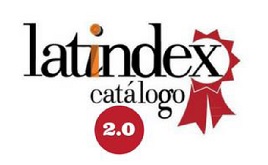The advancement of technology and its connectivity with professional ethics and corporate social responsibility
DOI:
https://doi.org/10.53641/junta.v3i2.59Keywords:
Corporate social responsibility, interest group, business reputation, threats, safeguard, shared responsibilityAbstract
Ethics and social responsibility in the professional practice of the public accountant is a subject of two realities: ethics and corporate social responsibility. On the one hand, Corporate Social Responsibility - CSR., Focused on companies that have to see the development of the area of influence where they carry out their business activities, allowing the interest group to satisfy their needs. The other component
is Professional Ethics, referring to the behavior of those who provide professional services independently to companies, through consultancies, accounting studies, legal studies, among others. Accounting professionals have a Code of Ethics, issued by the International Federation of Accountants (IFAC), we have a normative instrument of professional ethics worldwide, as indicated by the issuing body itself. However, in practice, actions are developed that are not related to what is contained in said Code, therefore, it is violated almost permanently and without any sanctions to the offenders. On the other hand, commercial companies must carry out their commercial activities in compliance with the standards of business ethics that is represented by business reputation. From all the above, it is concluded on the one hand, ethics is not fulfilled: neither as a person, nor as a professional, and as a company. In Corporate Social Responsibility, not all companies operate with their interest groups that represent the citizen community, other than the business community, however, its evolution is positive.
Downloads
References
Braidot, N. & Klaric, J. (2016). Neuro ventas. (2a ed.). Buenos Aires: Editorial Granica
Campos Olazábal, R. (2016). La responsabilidad social empresarial y su enfoque ambiental: una visión sostenible a futuro.
Caravedo, B. (2020). Hay que hacer una revolución del conocimiento y de los afectos. Perú 21.
Cornejo, A. (2011). ¿Cómo desarrollar un programa de responsabilidad social en su empresa?. El comercio.
Cela C., C. & Ayala, F. (2018). El cerebro moral.- Evolución del cerebro y valores humanos. Barcelona: Editorial Bonalletra Alcompas L.S.
Consejo de Normas Internacionales de Ética para Contadores (2014). Manual del Código de Ética para Profesionales de la Contabilidad. New York: Edición Institucional IFAC
Cuda, M. (2018). Neurociencias, Didáctica Y Pedagogía. Buenos Aires: Editorial Bronun.
Federación Internacional de Contadores [IFAC] (2014). Código de Ética para Profesionales de la Contabilidad.
Gorriti, L. (2009). Negocios & Capitales.- Empresas y Responsabilidad Social La República, p.11.
Huertas, E. (2016). El cerebro de un corrupto es capaz de adaptarse a la deshonestidad.
Minera Raura (2011). Memoria final 2011.
Mundo empresarial. (2016). La Alianza Gastón Acurio & Telefónica ‘Juntos para Transformar.
Quiroz Alfonso, W. (2016). Historia de la Corrupción En El Perú. Lima: Instituto de Estudios Peruanos.
Torres, M. & Miguel, A (2014). La RSE y la nueva forma de concebir negocios. Diario Gestión, p.p. 17-18.
Zamorano G., E. (1999). La ética de los contadores públicos. México D.F.: Editorial El tercer cantero, Editorial Publimpresos.
Ramírez Lozano, J. (2015). Responsabilidad Social Empresarial: por más programas sostenibles. El Comercio, pp. 7-12.
Remy, P. (2013). Responsabilidad social. Empresas en acción. El Comercio. pp. 13-15
Sunat (2010). Cesan en su labor a conocida notaria pública de Trujillo por delito de defraudación tributaria. Nota de Prensa N° 062 – 2010.
Downloads
Published
How to Cite
Issue
Section
License
Copyright (c) 2021 Eudosio Ramirez Tabraj

This work is licensed under a Creative Commons Attribution 4.0 International License.








